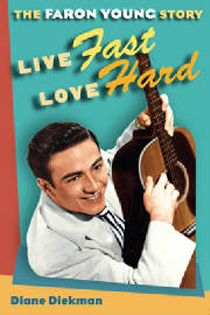 Seems like I live my life in a defensive posture. Crouched and ready to lunge like some lineman in a football game waiting for the ball to be snapped. The tension is intense. Always on guard.
Seems like I live my life in a defensive posture. Crouched and ready to lunge like some lineman in a football game waiting for the ball to be snapped. The tension is intense. Always on guard.On guard for the next blow, the next cruel attack. I could lay blame for the life lessons that brought me to this position. But I'm struggling to rise above that blame game.
Recently I reviewed a book written by an author who most evidently lived in a similar posture. I didn't like what I read. It was negative and bent on laying blame for his misfortunes and missed opportunities and failures on the people, institutions, and situations around him.
As we grow, one of the major signals of maturity is the end to the blame game and the acceptance that it is our lives to make or break as we choose. Even in the most dire of situations we have the power to choose how we will perceive, react, use, and grow. Too often I'm crouched, ready to spring on whatever assails me. I'm more surprised when someone does something nice, than if they do something hurtful. I expect the worst and suspect everything else.
I recently read a quote from John H. Dietrich. John is NOT the political writer. He was a minister who lived from 1878-1957 and thought and taught, according to his online bio, that "humanist thinking was the true foundation of religious liberalism."
Truthfully, I'm not quite sure I understand what that means. But towards the end of his life he said, "[My] philosophy and religion have undergone considerable, if not drastic revision. I realize now how my utter reliance upon science and reason and my contempt for any intuitive insights and intangible values which are the very essence of art and religion, was a great mistake; and the way in which I cut mankind off from all cosmic relationship was very short-sighted and arrogant."
I read that to mean that he finally found a greater being, God if you will, to be relevent. As one who loves words and fiber art and the beauty and symbolism of both, I had to smile. Apparently he finds God is the essence, not only of religion, but also of art. Yes, I can see that. Most artists marvel at what they create. Some even wonder 'where did THAT come from?" Now we know, as Mr. D states it -- their 'cosmic relationship.'
Even if Mr D had been misguided during his search for truth earlier in his life, he was right about another thing he said. "The highest and best thing that people can conceive is a human life nobly and beautifully lived."
I mentioned on my Subversive Stitchers: Women Armed with Needles facebook page that I stood up to defend my husband by calling a driver an asshole. The studly man was sitting in his bright yellow sports car basically toying with my wheelchair bound husband as he rolled along the crosswalk in front of this man. The driver revved his engine and started rolling forward, grinning, as my husband rolled directly in front of the car. All of the fury that I harbor against the unfair disease and situation that assails my husband erupted from my mouth in that one word. I think I have scarred for life the poor bag boy helping us with our purchases. The anger was almost tangible and the driver quickly stopped grinning and looked at me in surprise.
I heard my husband chuckle. I think he enjoys my Mama Bear mode.
But it is taking a toll on me that I really didn't appreciate until I read Mr. D's words. I hadn't realized that I had gotten off the main journey I was intended to travel. I should be living a "life nobly and beautifully lived." Calling a stranger in a souped up car an asshole somehow doesn't sound very noble.
Of course, noble does not mean silent and long suffering either. So maybe there was a tinge of nobility for at least speaking up, pointing out an injustice, an inhumane behavior. We should live to edify not just ourselves, but to help others which is perhaps the best part of Mr. Dietrich's quote:
"The highest and best thing that people can conceive is a human life nobly and beautifully lived — therefore their loyalties and energies should be devoted to the arrangement of conditions which make this possible. The sole issue is how to make this world a place conducive to the living of a noble human life, and then to help people in every possible way to live such lives."
I think of all of the leaders who make decisions controlling lives and wonder just how nobly they are living. Perhaps the question we should ask our politicians is: "are you living a noble life?"
If one must find a way to 'justify' one's actions, then perhaps there is a bit of nobility lacking. Perhaps if it only benefits the one rather than the many it isn't noble. Or if it hurts others in the process of gathering something you want -- it isn't noble.
We all know noble when we see it. It doesn't require an explanation. Noble doesn't need to wear a white hat or a wimple or a cross, or even a military insignia. Those symbols do not make a person noble. Nobility comes from within. "Noble implies a loftiness of character or spirit that scorns the petty, mean, base, or dishonorable: a noble deed."
If ever I were going to tattoo something on my body -- I think it would be a reminder. "Noble." A one-word nudge to not just live, but to live so that someday someone might come to associate the word 'noble' with my name. It is a word that loses its meaning when describing oneself as noble.
Noble should be spelled with an 'i' in it for a major component, I think, of the term is 'integrity.' But 'ethics' works well, too. The dictionary has such a lovely list of synonyms I just had to list them here:
august, beneficent, benevolent, benign, bounteous, brilliant, charitable, courtly, cultivated, dignified, distinguished, elevated, eminent, extraordinary, first-rate, generous, gracious, grand, great-hearted, high-minded, honorable, humane, imposing, impressive, liberal, lofty, magnanimous, magnificent, meritorious, preeminent, refined, remarkable, reputable, splendid, stately, sublime, supreme, sympathetic, tolerant, upright, virtuous, worthy....
People remark "oh if there was only someone who would ...." or 'if only there were more good people in the world who do....." "We need visionaries; leaders; right-minded thinkers...."
Maybe the lack of doers, thinkers, good people and visionaries is because we have lost our way and we are playing defense, rather than offense in this game of life....























